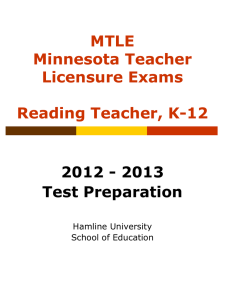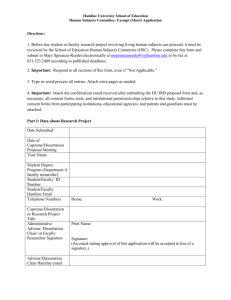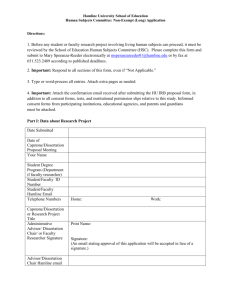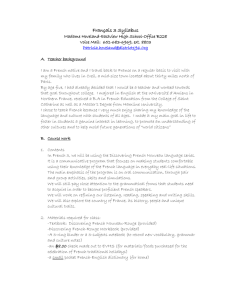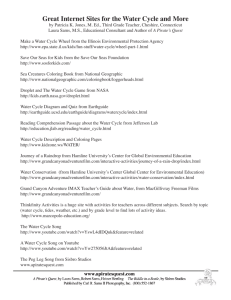Facts pertinent to BOTH essays The Shocking Truth: Barack
advertisement
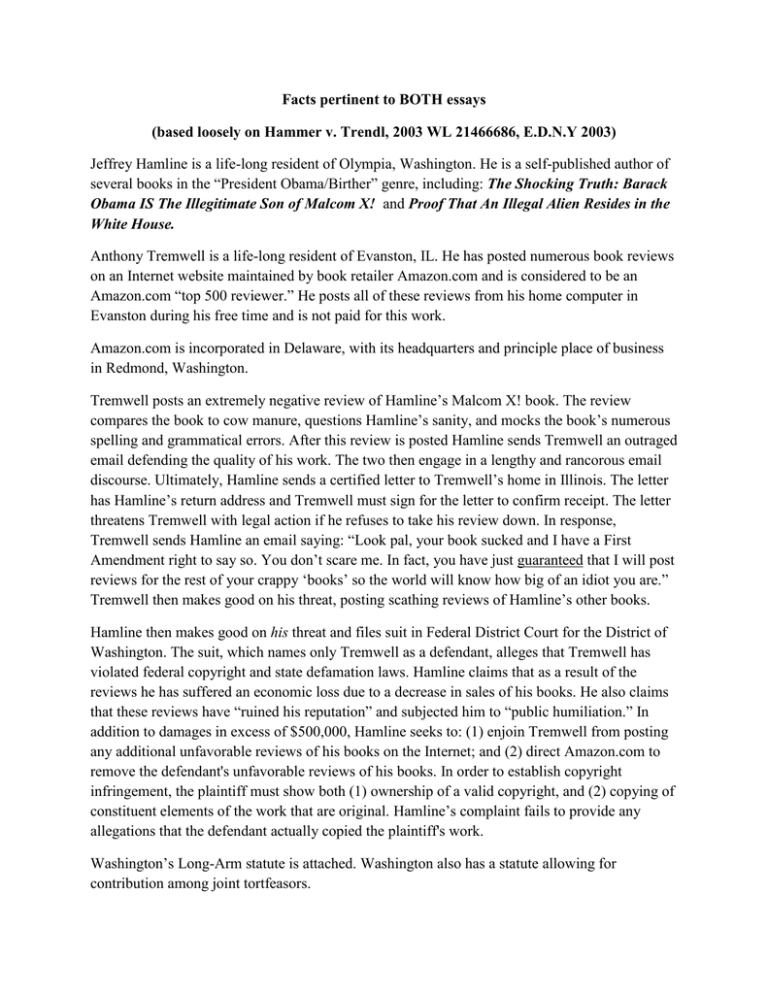
Facts pertinent to BOTH essays (based loosely on Hammer v. Trendl, 2003 WL 21466686, E.D.N.Y 2003) Jeffrey Hamline is a life-long resident of Olympia, Washington. He is a self-published author of several books in the “President Obama/Birther” genre, including: The Shocking Truth: Barack Obama IS The Illegitimate Son of Malcom X! and Proof That An Illegal Alien Resides in the White House. Anthony Tremwell is a life-long resident of Evanston, IL. He has posted numerous book reviews on an Internet website maintained by book retailer Amazon.com and is considered to be an Amazon.com “top 500 reviewer.” He posts all of these reviews from his home computer in Evanston during his free time and is not paid for this work. Amazon.com is incorporated in Delaware, with its headquarters and principle place of business in Redmond, Washington. Tremwell posts an extremely negative review of Hamline’s Malcom X! book. The review compares the book to cow manure, questions Hamline’s sanity, and mocks the book’s numerous spelling and grammatical errors. After this review is posted Hamline sends Tremwell an outraged email defending the quality of his work. The two then engage in a lengthy and rancorous email discourse. Ultimately, Hamline sends a certified letter to Tremwell’s home in Illinois. The letter has Hamline’s return address and Tremwell must sign for the letter to confirm receipt. The letter threatens Tremwell with legal action if he refuses to take his review down. In response, Tremwell sends Hamline an email saying: “Look pal, your book sucked and I have a First Amendment right to say so. You don’t scare me. In fact, you have just guaranteed that I will post reviews for the rest of your crappy ‘books’ so the world will know how big of an idiot you are.” Tremwell then makes good on his threat, posting scathing reviews of Hamline’s other books. Hamline then makes good on his threat and files suit in Federal District Court for the District of Washington. The suit, which names only Tremwell as a defendant, alleges that Tremwell has violated federal copyright and state defamation laws. Hamline claims that as a result of the reviews he has suffered an economic loss due to a decrease in sales of his books. He also claims that these reviews have “ruined his reputation” and subjected him to “public humiliation.” In addition to damages in excess of $500,000, Hamline seeks to: (1) enjoin Tremwell from posting any additional unfavorable reviews of his books on the Internet; and (2) direct Amazon.com to remove the defendant's unfavorable reviews of his books. In order to establish copyright infringement, the plaintiff must show both (1) ownership of a valid copyright, and (2) copying of constituent elements of the work that are original. Hamline’s complaint fails to provide any allegations that the defendant actually copied the plaintiff's work. Washington’s Long-Arm statute is attached. Washington also has a statute allowing for contribution among joint tortfeasors. You are Anthony Tremwell’s defense attorney. Question 1: Set forth the procedural defenses you have to this lawsuit, and any other procedural maneuvers you might wish to make. For each such defense or maneuver, set forth any colorable counterarguments the plaintiff might make. For each such issue, state the likelihood of success. Question 2: Assume that Hamline has withdrawn his copyright claims, but that the case is permitted to remain in federal court under diversity. In your research, you discover a journal article with the following information: “A strategic lawsuit against public participation (SLAPP) is a lawsuit that is intended to censor, intimidate, and silence critics by burdening them with the cost of a legal defense until they abandon their criticism or opposition. The typical SLAPP plaintiff does not normally expect to win the lawsuit. The plaintiff's goals are accomplished if the defendant succumbs to fear, intimidation, mounting legal costs or simple exhaustion and abandons the criticism. A SLAPP may also intimidate others from participating in the debate. A SLAPP is often preceded by a legal threat. SLAPPs take various forms but the most common is a civil suit for defamation, Most SLAPPs ultimately would fail if litigated fully, but the SLAPP filer doesn't usually intend to do so. As previously mentioned, the point of a SLAPP is to intimidate and silence the target through the threat of an expensive lawsuit. The difficulty, of course, is that plaintiffs do not present themselves to the Court admitting that their intent is to censor, intimidate or silence their critics. Hence, the difficulty in drafting anti-SLAPP legislation, and in applying it, is to craft an approach which affords an early termination to invalid abusive suits, without denying a legitimate day in court to valid good faith claims.” You check, and sure enough Washington’s state legislature passed an Anti-SLAPP law in 2011! This law gives defendants who think they’ve been SLAPPed the ability to file a “special motion to dismiss” within 45 days after service of the claim. The special motion to dismiss must make an initial showing that the claim at issue arises from “an act in furtherance of the right of advocacy on issues of public interest.” The Court must then hold a hearing on the motion, at which it is the plaintiff’s burden to prove that his claim is likely to succeed on the merits. The parties may present evidence at this hearing, and the Court may even order discovery in advance of this hearing if it looks like that will be of use. If the plaintiff shows that the claim is likely to succeed on its merits, the motion to dismiss will be denied. The only provisions in the FRCP that allow for a case to be dismissed “on the merits” before trial are Rule 12(b)(6), which allows a complaint to be dismissed for failing to state a claim upon which relief can be granted, Rule 12(c), which allows for judgment on the pleadings, and Rule 56, which allows a court to award summary judgment to a party where there is no disputed issue of material fact and the moving party is entitled to judgment as a matter of law. Rules 12(b)(6) and 12(c) are different in a crucial way from Rule 56. Rule 12(b)(6) allows a court to dismiss a case just by looking at the complaint, and Rule 12(c) allows a court a court to dismiss a case after looking at both the complaint and the answer. Both of these motions must be made without reference to any external evidence. If a motion relies on facts that must be proven using evidence, it has to be treated as a motion for summary judgment under Rule 56. Rule 56 sets forth detailed procedures for how motions for summary judgment are to be handled, specifically for how factual evidence is to be presented, what factual evidence may be considered, how the court is to weigh allegedly disputed issues of fact, and the circumstances under which a court must allow the case to go forward. The relevant language in Rules 12 and 56 was added by amendment in 1946, so you check the Advisory Committee Notes from 1946. (These Notes do not have the force of law and are not technically part of the Rules as published, but they are useful in interpreting what the drafters of the Rules intended to do and why.) The Notes indicate that the purpose of this language was to create uniformity in the treatment of motions seeking adjudication on the merits based upon evidentiary matters outside of the pleadings. Prior to this, the federal courts had no consistent methodology for handling such motions: Some would hold hearings and review evidence, some would hold hearings and review only certain categories of evidence, and some would refuse to allow any outside evidence at all. The Notes go on to say that in order for the goal of consistency and uniformity to be met, the procedures contained in Rules 12 and 56 should be the only ones available for a motion to dismiss on the merits. You definitely want to file a “special motion to dismiss” under Washington’s anti-SLAPP law, but you are worried that the federal court might not be willing to entertain such a motion. What arguments will you make for why you should be permitted to make use of Washington’s anti-SLAPP law, despite the fact that you are in federal court? What arguments will you anticipate the plaintiff making in opposition? Who will have the better of the argument?

